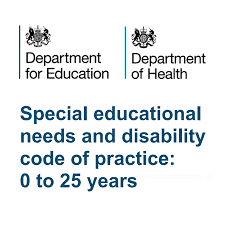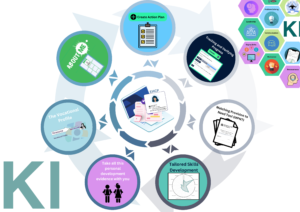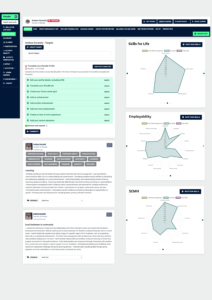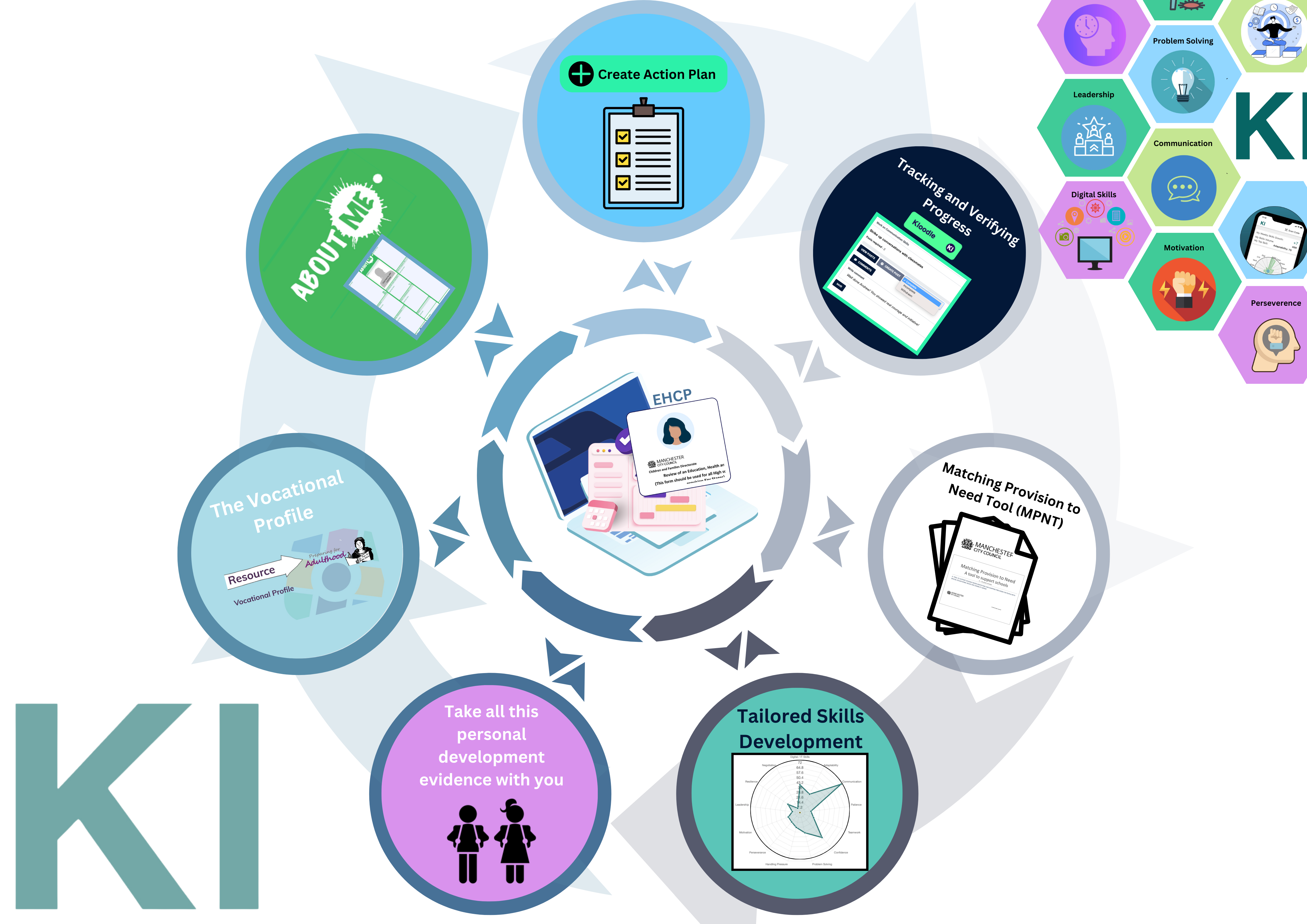Understanding the EHCP
An Education, Health, and Care Plan (EHCP) is a critical tool designed to support children and young people with special educational needs and disabilities (SEND) in the UK. It is a formal and legally binding document, outlining not only their educational needs but also the health and social care support required to help them thrive. However, the EHCP is more than just a document; it’s a roadmap for SEND students, detailing their strengths, capabilities as well as challenges, the support they require, and the objectives they want to achieve throughout their educational journey.
Before an EHCP is provided, a needs assessment must be requested from the local education authority (LEA). This request can be made by parents, doctors, health visitors, or the school’s SENCO on behalf of the child. Upon receiving the request, the LEA gathers information from parents, teachers, social workers, and other professionals familiar with the child. Supporting documents, such as school reports and medical assessments, are also reviewed to determine if an EHCP should be issued, ensuring that the child’s educational and support needs are properly identified.
Development of the EHCP Review System
One of the main concerns with the current EHCP system is the potential for these plans to become static and outdated. EHCPs are typically updated during key transitions, such as when a child moves from primary to secondary school, and they are reviewed annually in accordance with the Special Educational Needs and Disability (SEND) Code of Practice (2015). These plans are designed to set initial objectives, identify potential outcomes for the young person, and adapt to their ongoing progress or any setbacks over time.
 However, in some cases, a young person’s needs can change significantly between these annual reviews. Without more frequent assessments and updates by the staff working closely with the young person, there is a risk that the EHCP becomes less relevant to their current level of development. This is particularly critical during formative stages of life, where delays in addressing evolving needs could hinder the young person’s ability to access the most appropriate support.
However, in some cases, a young person’s needs can change significantly between these annual reviews. Without more frequent assessments and updates by the staff working closely with the young person, there is a risk that the EHCP becomes less relevant to their current level of development. This is particularly critical during formative stages of life, where delays in addressing evolving needs could hinder the young person’s ability to access the most appropriate support.
Local Education Authorities (LEAs) hold the responsibility for updating the EHCP based on any changes identified at the annual review. However, since this is an annual process, it can sometimes fail to capture the non-linear nature of a young person’s development. As a result, key educational and developmental outcomes may go unaddressed for long periods, leading to situations where the EHCP no longer reflects the student’s current needs or progress.
Making EHCPs Dynamic with Kloodle
Kloodle, the skills-evidence platform, offers a way to make EHCPs dynamic and continuously updated, reflecting the student’s evolving needs and achievements in real-time.
 Here’s how Kloodle can enhance the EHCP process:
Here’s how Kloodle can enhance the EHCP process:
- Creating Action Plans: Kloodle allows schools, teachers, and support staff to create detailed action plans for students, which can be aligned with the short- and long-term outcomes in the EHCP. SMART targets can be set and matched to the plan, and once completed, verified by the authorised teacher or other professionals. This ensures that the EHCP is not just a static document but a living record of the student’s progress.
- Supporting Tools: Manchester City Council has developed the Matching Provision to Need Tool (MPNT), a guidance framework designed to help schools and colleges identify the appropriate levels of support for children and young people with special educational needs and disabilities. This tool outlines the various tiers of support that schools should provide based on the specific needs of each child, at different key stages in the educational journey. By linking to this resource on Kloodle, schools can ensure that SEN children can have a more personalised, structured, and updated plan that aligns their educational support with the MPNT framework, ensuring that their individual requirements are met effectively.
- Tracking and Verifying Progress: One of Kloodle’s unique features is its ability to track and verify the achievement of targets. Evidence such as work completed, projects, or other skills-based achievements can be uploaded and linked directly to the action plan, showing progress in real-time. This evidence can be verified by the authorised and relevant staff members. This process helps to build a body of evidence during the year for the EHCP, which can be updated frequently to reflect the student’s ongoing development and progress towards outcomes. Comments made by teachers at targets’ review can be automatically transferred to the EHCP annual review documentation making the process very efficient.
- Tailored Skills Development: Kloodle enables the development of a wide range of personal and practical skills. For students with SEND, this is crucial because many may not follow traditional academic routes, so the development of employability and life skills becomes a key aspect of their education. Using Kloodle, schools can set specific skill-based short-term targets, linked to each area of personal development, communication, or vocational skills, and monitor progress as part of the EHCP.
- Building Dynamic EHCPs: Kloodle transforms the EHCP into a dynamic plan that evolves in real time as the student grows, enabling educators to implement adaptive teaching strategies to support progress more effectively. The platform allows the ability to adapt to the changing needs of students and track their progress on a continual basis ensuring that the EHCP remains relevant and effective throughout the student’s educational journey. This real-time updating system allows educators to respond to changes in a student’s abilities and challenges much more efficiently. As a result, this is much more responsive for their every changing need. It also allows the LEAs instant and equal access to a ‘live document’ in order to assess progress and make any necessary amendments.
- All About Me: Skills can be linked to the All About Me section, which can be written on Kloodle. Students can reflect on their strengths, goals, and experiences in this section, while connecting these reflections to specific skills they’ve developed through various activities. By doing so, their personal development is matched with key skills like teamwork, problem-solving, or communication, which are tracked on the platform. As students engage in projects that enhance these skills, their All About Me profile evolves, offering a holistic view of both their personal growth and academic achievements.
- The Vocational Profile: This ‘discovery document’ is a person-centred tool used for gathering information about a young person’s aspirations, interests, and skills related to finding work. It involves collaborative conversations, often guided by a job coach, to identify the support needed for successful employment or work placements. The profile, designed to be a dynamic, live document updated after work experiences, captures not only vocational goals but also practical areas for development, such as independent travel and money management. On the Kloodle skills’ development platform, the vocational profile fits seamlessly by highlighting and tracking skills’ progression, making it an ideal match for documenting a young person’s career readiness and growth.
Why Kloodle is Ideal for SEND Students
For SEN students, especially those who might not follow a traditional academic educational pathway, documenting and showcasing their skills development is crucial. Kloodle not only helps to track academic achievements but also focuses on life skills, such as cooking, gardening, mentoring, and outdoor learning—skills that are crucial to these students’ futures.
Kloodle offers customisable “Skills Wheels” for each activity, providing a framework to assess and develop skills in areas that are most beneficial for students with SEND. This individualised approach fits perfectly with the tailored nature of EHCPs, ensuring that every aspect of a student’s development is monitored and supported.
As well as skills wheels linked to skills development, students have wheels linked to emotional development, such as the SEMH framework, and employability through linking activities to the six areas of the CDI ( Career Development Institute) framework .

A New Era of EHCP Management
By utilising the Kloodle tools to enhance the EHCP process, educators can ensure that students’ aspirations are continually supported and nurtured. Regularly updating progress and aligning support with each student’s evolving strengths helps to set clear career goals and guide them towards positive outcomes. This real-time, skill-based approach ensures that SEND students are not only achieving their educational objectives but are also better prepared for life beyond school, with a strong focus on both personal development and future career readiness.

